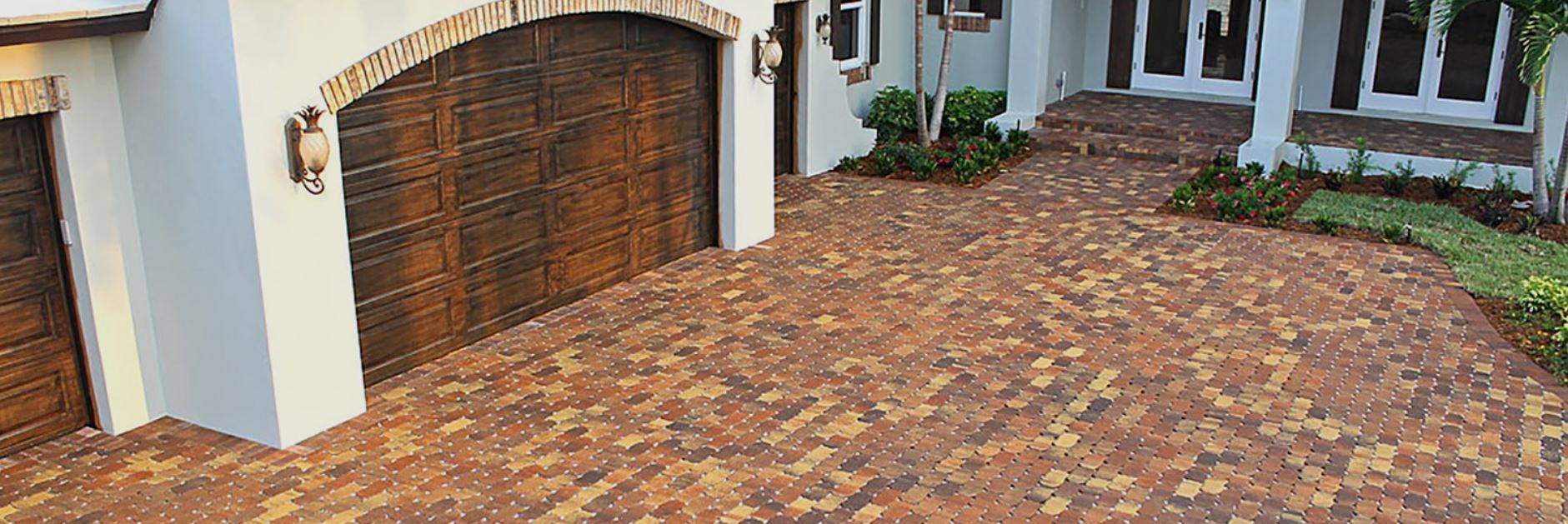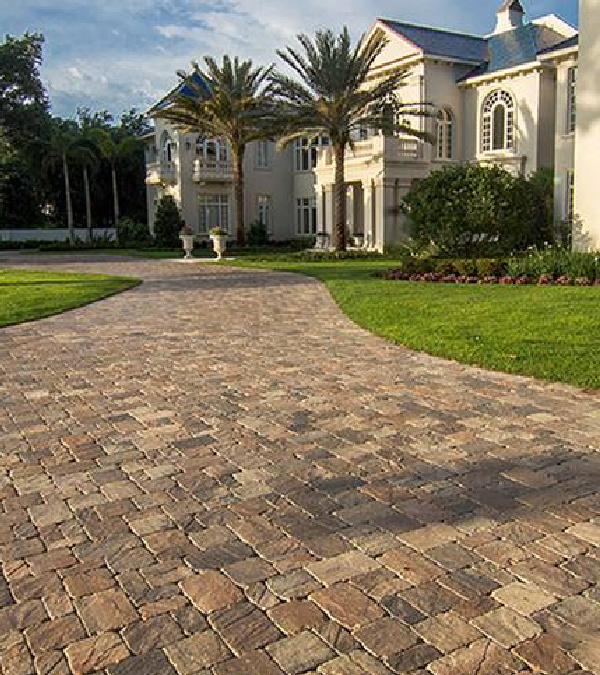
What Are Permeable Pavers?
As the demand for ecologically-friendly green construction continues to grow, permeable pavers are becoming an increasingly popular choice for both commercial and residential applications here in Southwest Florida, and indeed throughout the country. The key to understanding how permeable pavers work lies in understanding that the pavers, themselves, are not permeable; they are simply one part of an entire subterranean system that allows stormwater to drain through the joints between the pavers.
The water that is drained through the permeable joint material is then subsequently naturally filtered through multiple levels of varying degrees of crushed stone, until it is redistributed back into the groundwater without the need for an on-site retention pond.
What Are the Advantages of PICPs?
Given the tropical climate of Southwest Florida, we often experience a tremendous amount of stormwater run-off during the rainy season; this leads to overwhelmed stormwater management systems, overflowing canals and even flooded streets. PICPs are a crucial tool in combating this problematic rise in the water table that often accompanies torrential downfalls. They are also indispensable in preventing the potentially devastating environmental effects associated with fertilizer run-off and coastline erosion.
Not only does the installation of a permeable interlocking concrete paver system combat the larger issues caused by excessive erosion, run-off and overflow, but they also help keep your personal property protected against the rising water table. Because the joints allow for the quick and natural re-absorption of water into our natural aquifer system, PICPs can help reduce the level of standing water and storm-related flooding that your property experiences.
To learn more about how Permeable Interlocking Concrete Pavers (PICPs) can help protect YOUR property, please feel free to give us a call!


